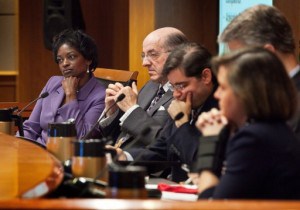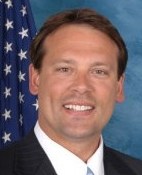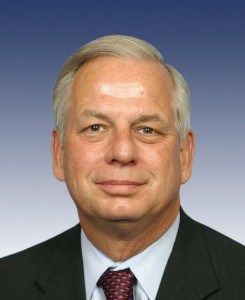
Craig E. Moffett joined Sanford C. Bernstein & Co. as the Senior Analyst for U.S. Cable and Satellite Broadcasting in 2002.
Craig Moffett, a Wall Street analyst with Sanford Bernstein, is sounding the warning bells that if AT&T and Verizon assign usage caps to their forthcoming LTE wireless broadband services, they will never provide suitable competition for American consumers.
The implications of Internet Overcharging schemes in wireless broadband go well beyond the two companies’ broadband offerings. Investors expect either AT&T or Verizon to attempt a buyout of DirecTV in the coming months, hoping to pair the satellite service with broadband packages delivered by DSL, fiber, or wireless broadband. Because many DirecTV subscribers are located in rural areas where even DSL service is often not available, wireless broadband networks would be the most likely means of reaching customers, but not with onerous usage caps.
“If LTE networks are going to be usage-capped, then the last pretense that LTE networks can be positioned as a substitute for terrestrial broadband would seem to be gone,” Bernstein told his clients. “And if LTE can’t be offered as a replacement for wired broadband, then the notion of an out-of-region bundle of DirecTV and LTE is no more.”
Unlike earlier broadband technologies, WiMax, LTE, and other 4G broadband platforms can deliver far more data to subscribers at reduced costs. With the increased efficiencies offered by the faster networks, carriers can provide customers with considerably more wireless broadband service, unlike heavily capped 3G networks, most of which are limited to 2-5GB of monthly usage before the penalty rates or speed throttles kick in. While completely unlimited service is unlikely until capacity increases, there is plenty of room to allow customers to access 4G networks without thinking twice about everything they do on them.
Sprint is betting its comeback on its virtually-unlimited Clear WiMax 4G service, now becoming available in an increasing number of cities across the country. Marketed as a replacement for wired broadband, Sprint is hoping customers will flock back to the carrier, especially if AT&T and Verizon’s 4G LTE offerings are capped.
But AT&T and Verizon have both made noises about usage capping their LTE offerings, if only to increase revenue. These profit raising Internet Overcharging schemes come despite efforts by the Obama Administration to dramatically increase wireless spectrum available for wireless broadband services. Dave Burstein from DSL Prime says Federal Communications Commission chairman Julius Genachowski is betting the farm on wireless broadband being the best chance for increased broadband competition.
“The heart of the U.S. broadband plan is to release more spectrum – enough for 10-20 networks like Verizon’s LTE now building – and pray that will be enough competition in five to seven years to check price increases,” Burstein writes.
Making wireless an important substitute for DSL requires raising bandwidth caps from today’s typical 5-10 gigabytes to several times as high as LTE makes the cost reasonable. If Verizon follows AT&T with an abusively low cap of 2-5 gigabytes and Sprint etc. don’t clobber them, the whole broadband plan falls apart because that’s not enough for competition in the future.
I doubt Julius understands this, because he would be doing everything in his power to avoid low caps. It’s just one more strike against “affordable” broadband, like the recent Comcast and Verizon price increases. People need to laugh out loud when Genachowski says “affordable” while tolerating continuous price increases.
While wireless broadband can deliver access to many Americans who have never had broadband service before, it’s not well-positioned to compete for customers seeking to use the next generation of high bandwidth Internet applications.
None of the current wireless services are suitable for high quality video streaming of HD TV shows and movies, a crucial application for many broadband users. Burstein also notes large uploads are painfully slow on Clear’s WiMax network because of limited upstream speeds, but he expects improvements in time, assuming carriers expand with demand. If not, as more users pile on the next generation wireless networks, their suitability for high bandwidth services becomes even more questionable.
“How much wireless could compete with landlines, especially as all cable connections are moving to 50 meg, was a crucial question for the broadband plan,” Burstein writes. “The consensus of several good engineers is that 4G competes fine with DSL if not many people expect video or other high-bandwidth apps. Wireless certainly can’t keep up if many people want to watch their TV over the net, so it’s only a partial substitute.”
As for AT&T and Verizon, Moffett suspects both may have to take a pass on DirecTV, consumed with fighting against broadband reclassification and Net Neutrality policies in Washington. Taking on a second battle to run another dog and pony circus to gain regulatory approval for a buyout of DirecTV may be more than they’re willing to deal with at the moment.


 Subscribe
Subscribe






